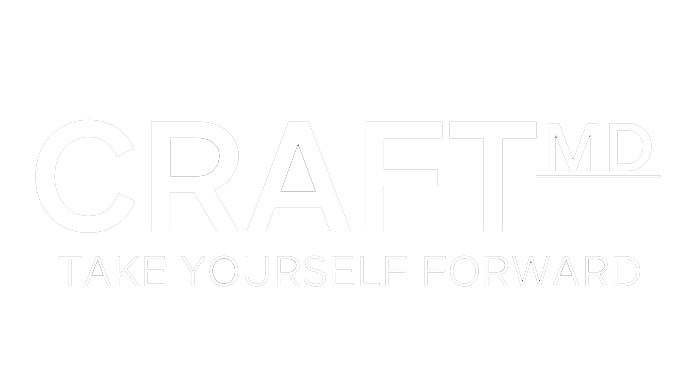When preparing for a tummy tuck procedure, it's natural to want to feel as prepared as possible. And at CraftMD, we believe that when our patients are informed and empowered, the rest of the journey becomes smoother. Most of our patients know that this procedure is designed to create a flatter, more toned abdominal area by removing excess fat and skin and, in some cases, restoring weakened or separated muscles. But many wonder about the ideal weight for a tummy tuck or how their GLP-1 agonists, such as semaglutide and tirzepatide, play into their preparation. So, together, let’s examine questions like these to give you a sense of how to get the most out of your tummy tuck procedure.
Understanding the Ideal Weight for a Tummy Tuck
To put it simply, the ideal candidate for a tummy tuck is someone who is at or near their target weight. While there is no universal "ideal weight" for this procedure, being within 10-15 pounds of your goal weight is generally recommended. It's important to understand that a tummy tuck is not a weight loss surgery; it is a body contouring procedure meant to address issues that diet and exercise cannot, such as loose skin or a protruding abdomen due to muscle separation.
Why Your Weight Matters
Being close to your ideal weight ensures the best possible outcomes for several reasons:
- Stability: Weight fluctuations after surgery can affect the results, potentially leading to additional sagging or stretched skin.
- Healing: Patients who are at a stable, healthy weight typically experience smoother recoveries.
- Safety: Surgery risks are lower for individuals at a healthy weight, as obesity can increase the risk of complications.
The Role of GLP-1 Agonists
For patients utilizing GLP-1 agonists, such as semaglutide (commonly known by the brand name Ozempic) or tirzepatide (known as Mounjaro), it's crucial to address how these medications fit into the picture. These drugs, primarily used for the treatment of type 2 diabetes and obesity, work by mimicking an intestinal hormone that helps lower blood sugar and can lead to weight loss.
Special Pre-Surgical Consideration
If you are on a GLP-1 agonist, it's essential to pause these medications one week before your surgery. This precaution is advised for several reasons:
- Blood Sugar Management: These medications can affect your blood sugar levels, and managing these levels is crucial during the healing process.
- Nutritional Support: Healing requires adequate nutrition, and GLP-1 agonists can sometimes suppress appetite, which might complicate post-operative recovery.
- Medication Interactions: To avoid any potential interactions with medications administered during and after your procedure.
Start Your Journey with Us
As with any procedure, we recommend you begin your journey with a consultation with our esteemed, double board-certified plastic surgeon, Dr. Randall O. Craft. You can be assured that Dr. Craft will take special care to discuss your specific conditions and goals so that you can feel truly excited as you go forward. So, while there are a few things to keep in mind as you prepare, you can be sure you’re not alone. Our team is here to guide you every step of the way.
If you're considering a tummy tuck or have any questions about preparing for body contouring surgery, contact us today for a consultation. We can’t wait to help you get the results you deserve.

